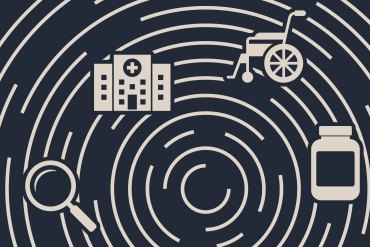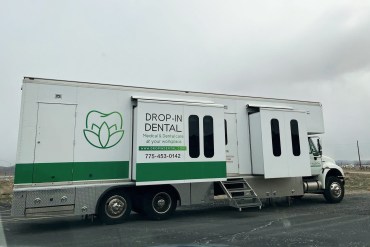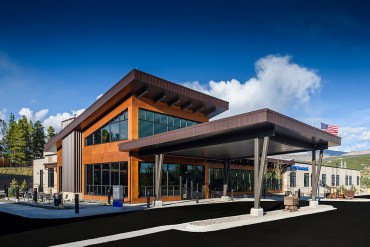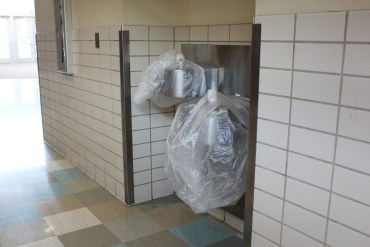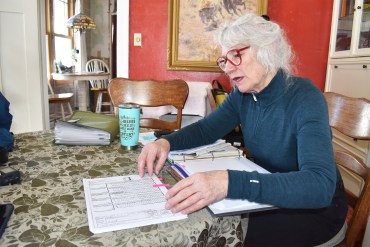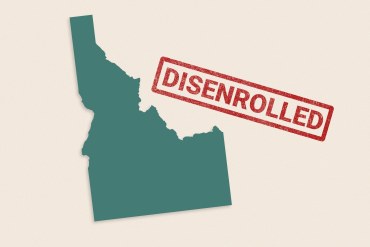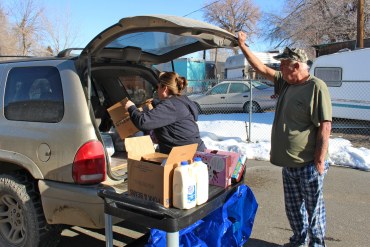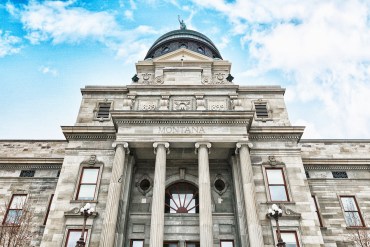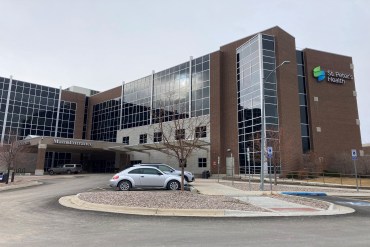Fresh Produce Is an Increasingly Popular Prescription for Chronically Ill Patients
Fresh produce prescription programs are getting a boost in Montana as a way of helping people with chronic conditions such as diabetes and high blood pressure. The approach may be a model for other rural states to promote healthy eating in food deserts.
End of Covid Emergency Will Usher in Changes Across the US Health System
The May 11 expiration of the federal government’s pandemic emergency declaration will affect patient care across a broad range of settings, including telemedicine, hospitals, and nursing homes.
Mobile Clinics Really Got Rolling in the Pandemic. A New Law Will Help Them Cast a Wider Safety Net.
Mobile clinics that provided covid-19 testing and vaccines at the peak of the pandemic are now being used to provide a range of health services in hard-to-reach communities. A law passed late last year allows qualified health care centers to use federal grants to expand the fleets.
Colorado Bill Would Encourage, But Not Require, CPR Training in High Schools
Colorado is one of 10 states without a law requiring CPR training for high school students, but proposed legislation that recently passed the state House would only strongly urge schools to teach this lifesaving skill.
Montana Considers New Wave of Legislation to Loosen Vaccination Rules
Bills being considered by Montana lawmakers would allow people to refuse routine vaccinations based on their conscience, along with setting new rules for schools, courts, and businesses.
Medicaid Health Plans Try to Protect Members — And Profits — During Unwinding
States are turning to the big health insurance companies to keep Medicaid enrollees insured once pandemic protections end in April. The insurers’ motive: profits.
Covid Aid Papered Over Colorado Hospital’s Financial Shortcomings
Financial pitfalls at the nation’s highest-elevation hospital serve as a cautionary tale as rural hospitals emerge from the pandemic on shaky ground.
Struggling to Survive, the First Rural Hospitals Line Up for New Federal Lifeline
Hospitals in New Mexico, Texas, and Oklahoma are among the first to apply for a new rural hospital payment model that shifts the focus of services away from overnight stays to outpatient and emergency care. Still, experts say the law needs to be amended to provide the right mix of care for rural communities.
Schools Struggle With Lead in Water While Awaiting Federal Relief
President Joe Biden said in his State of the Union address that federal funds will pay to replace lead pipes in hundreds of thousands of schools and child care centers. In the meantime, schools are dealing with high lead levels now.
Eli Lilly Slashed Insulin Prices. This Starts a Race to the Bottom.
Eli Lilly’s news that it plans to cut insulin costs for patients will help, not hinder, the recent efforts in California and by entrepreneurs such as Mark Cuban to offer lower-cost alternatives, drug pricing experts said.
Information Blackout Shrouds New Reports of Deaths, Injuries, and Abuse at Montana State Hospital
Patient injuries, abuse, and neglect have continued at the Montana State Hospital since the state-run psychiatric facility lost its federal certification due to preventable patient deaths. But state officials won’t release details, citing laws making those reports confidential.
Idaho Dropped Thousands From Medicaid in the Pandemic’s First Years
The removals, detailed in emails between state and federal health officials, hinged on disagreements over how states could disenroll people during the public health emergency. Consumer advocates fear the alleged violation signals the mess to come on April 1, when the pandemic-era Medicaid coverage mandate ends.
After Capping Insulin Copays, Colorado Sets Its Sights on EpiPens
Colorado’s proposed legislation to cap the copay for the EpiPen is part of a nationwide trend as more states try to shield patients from skyrocketing drug prices.
Montana Seeks to Insulate Nursing Homes From Future Financial Crises
Lawmakers are considering creating standards to set Medicaid reimbursement rates. But industry observers wonder whether the move would be too little, too late to bolster a beleaguered industry.
Looming Cuts to Emergency SNAP Benefits Threaten Food Security in Rural America
In a few weeks, pandemic-era emergency boosts to SNAP benefits, formerly known as food stamps, will be rolled back across 32 states, putting more pressure on food pantries to fill the gaps and exacerbating challenges for rural areas, where a greater share of people are enrolled in the program compared with metro areas.
States Seek Crackdown on Toxic Ingredients in Cosmetics to Close Gaps in Federal Oversight
Washington state regulators found formaldehyde, lead, and arsenic in lipstick, powder foundations, skin lotions, and hair products marketed to and popular with women of color. Now legislators there are seeking to ban the products and, like at least a dozen other states, make up for lax federal rules.
Amid Dire Suicide Rates in Montana, Governor Expands Student Mental Health Screening
Republican Gov. Greg Gianforte announced a $2.1 million grant using federal aid after state lawmakers rejected a bill that would have essentially addressed the same needs of young people at risk of suicide.
Republican Lawmakers Shy Away From Changing Montana’s Constitutional Right to Abortion
Lawmakers in 14 states have passed near-total bans on abortion since the U.S. Supreme Court overturned Roe v. Wade. But in some conservative-led states where court rulings determined their constitutions protect abortion, including Montana, politicians haven’t asked voters to weigh in.
Montana’s Tax-Exempt Hospitals Oppose Increased Oversight by State Officials
As Montana officials seek to make nonprofit hospitals prove the benefits they provide the community justify their tax exemptions, industry leaders propose their own changes — which state officials say would further limit the state’s authority.
Public Health Agencies Turn to Locals to Extend Reach Into Immigrant Communities
Local health departments combat disparities by funding immigrant and minority community groups and letting them decide how best to spend the money.





